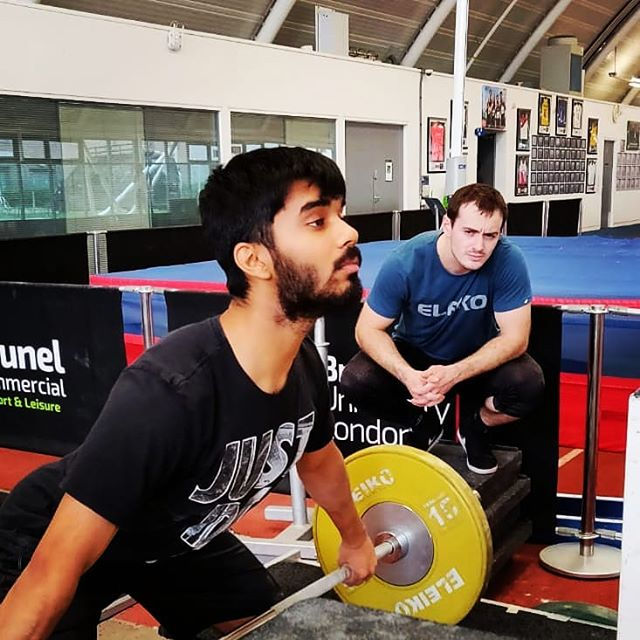5 Tips To Improve Your Snatch
- Kristian McPhee

- Feb 6, 2020
- 3 min read
Learning the Snatch technique is one of the hardest skills to master, it contrasts with the clean and jerk, in that it favours the athleticism attributed to a gymnastic body-type over the ‘gym-bro’ who may be struggling to learn the snatch after years spent believing that parallel squats were the lowest one could possibly go and the overhead squat was a mere fairytale. A big snatch requires all the elements of flexibility, strength, power and technique, without one of these your snatch will eventually suffer. This article is here to help prevent the frustration that the snatch can inevitably bring.
1. Start Right, End Right
The start position in the snatch is often ignored by many beginners because we only really know we have failed the snatch if it doesn’t make it above your head. If you do not start correctly, the bar path and your power can be severely handicapped. When you set up, check your feet, knees, hips and shoulders.
Firstly, start with your toes under the bar, if the bar starts far away, its stays far away. Pressure should be distributed on the balls of your feet to allow your legs to drive through the floor. Points your feet and knees slightly out, this will help the bar stay close without smashing into your knees.
Keep those hips down! Hips should always be lower than your shoulders, so make sure they are in your start position.
Shoulder must be over the bar to start this will allow you to produce that powerful hip extension when you move into the extension at the top of the lift.
📷

2. Problem? Reverse the Chain
Working backwards from the snatch is the ideal problem solver. If you have a problem with your catch position, overhead squats and snatch balance are going to be your friends. For 90% of beginners it is the second pull (from the knee into the extension). Dip snatch and hang snatch above knee will be your next port of call. Finally, if there are issues transitioning from below the knee to above, hang snatch below the knee or pause snatch (pausing at the knee) will help your mind and body connect to the two. Don’t just continue to snatch from the floor, experiment with a warm up drill of Hang snatch, Hang snatch below the knee, snatch from the floor until you feel the floor snatch is perfect.
3. You are as weak as your weakest point.
Making your weaknesses your strengths is essential. After asking Giles Greenwood[1]at a GB Camp whether I should do more snatch balance, he just said to me “you will always be as a weak as your catch position”, and this catch position has haunted me throughout my career. Having a huge pull means nothing if your overhead position cannot receive the weight correctly. Weaknesses may always be there, but if you step into the gym tomorrow and attack them they will improve and help your snatch along!
4. Pulls, Pulls, Pulls and do them correctly!
Essential for technique and strength, without these, you cannot get enough mileage on the correct positions for it to carry over into your snatch! Pulls that emphasise control, with a shrug with the shoulders and up onto the toes. Just snatching to improve your snatch is like learning to drive a car under race conditions, you really need some quiet time to work just on control and movement patterns. Many beginners shy away from pulls often because they do not understand the purpose, nor feel the effect. Pulls do not make you feel like you will snatch the weight because you and the bar are not moving like in a full snatch, but have no fear, they will help your snatch. I recommend five sets of 3 repetitions +10kg more than your best snatch.
(embed video: https://www.youtube.com/watch?v=_IdYjwdwNeY)
5. Technique is nothing without strength
The old Russian weightlifting research show that the snatch on average is about 60% of your maximum back squat. If you only do a few WODs a week and your leg strength is something you struggle with, I recommend that squats are trained in another session (or at the very least, before the WOD) if you want to truly improve your efficiency, leg strength and ultimately your potential in the Olympic lifts.
I leave you with a quote from the 3-time Olympian and ex-GB national Coach, Mike Pearman:
“You must learn to love the snatch”.
[1] 180kg Snatch, British Record Holder and Commonwealth Gold Medalist






Comments